
[ad_1]

So you’re a woman who wants to start strength training?
Well you’ve come to the right place!
We help women just like you grow strong, and today we’ll get you started on your strength training journey.
Here’s what we’ll cover in our strength training guide for women:
After today’s guide, you’ll know exactly how to transform yourself into a superhero!
What makes me so confident? How do I know so much about women growing strong?
Allow me to introduce myself: My name is Staci Ardison.
This is me deadlifting 455 pounds:
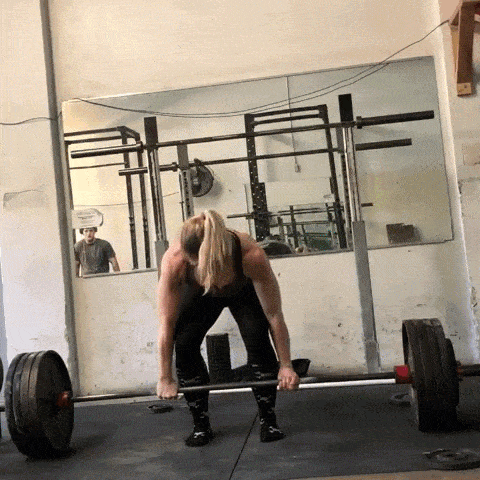
I’m currently the Senior Coach here in the Nerd Fitness Coaching Program.
And no, I wasn’t born this strong (that would be strangely awesome). It’s only after discovering a love of strength training that I learned how to handle weight like this.
Obviously, we won’t start you out lifting that much at first. But we will set you up on a path that if you want to, one day you’ll be able to.
Before we get to it, if you’re in a hurry, I want you to know we’ve compiled all our strength training material into a friendly guide so you can read it at your leisure (I’m picturing you reading the guide poolside, sipping a lemonade).
Download Strength Training 101: Everything You Need to Know when you enlist in the Rebellion (that’s us!) below:
Download our comprehensive guide
- Everything you need to know about getting strong.
- Workout routines for bodyweight AND weight training.
- How to find the right gym and train properly in one.
Alright, let’s do this!
Should Women Lift Weights? (Why You Should Start Strength Training)
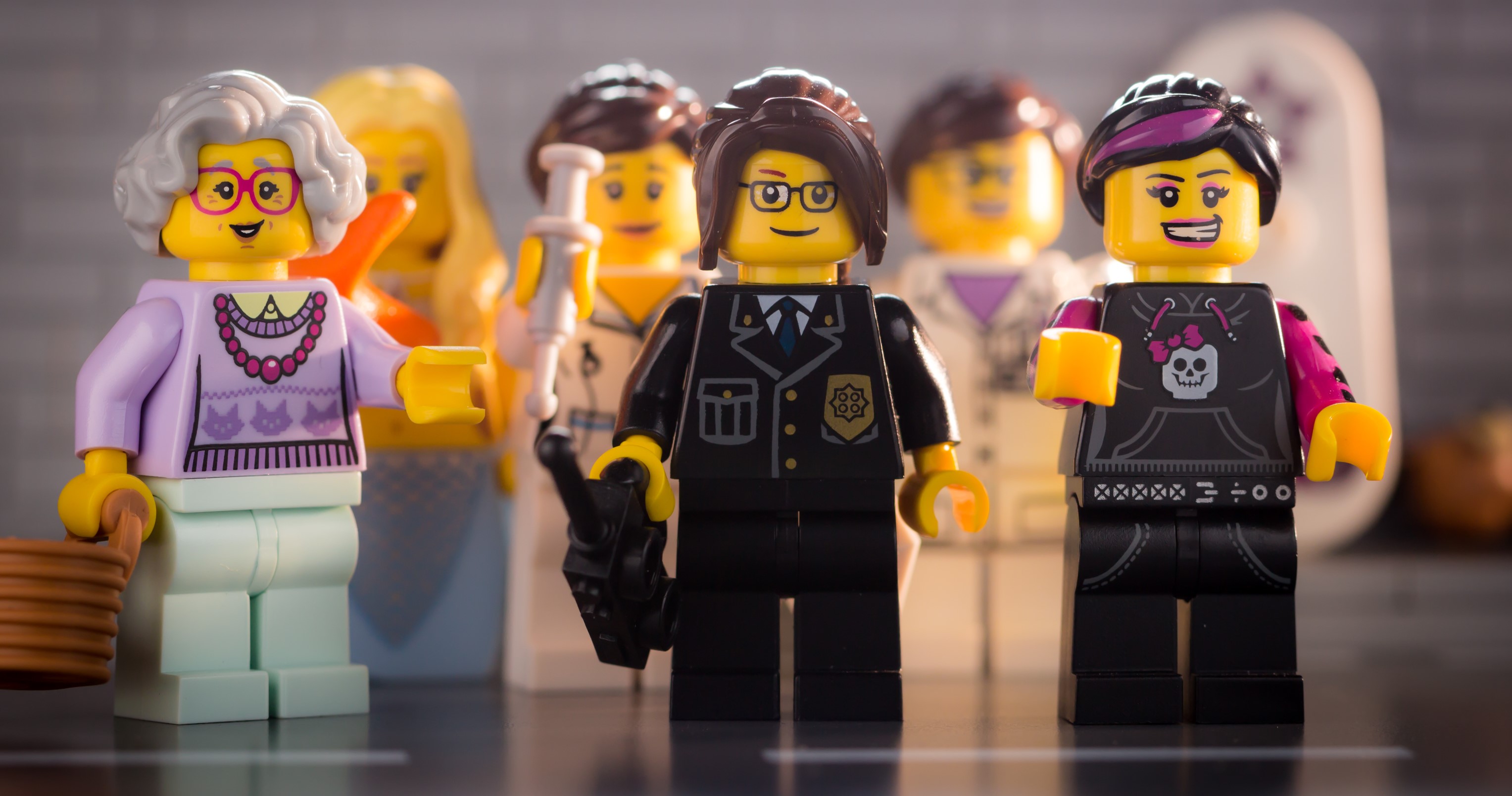
Everyone should start strength training: people of every sex and gender, the young, the old…everyone.[1]
We discuss the benefits heavily in our introduction to strength training, but I’ll highlight some examples now.[2]
Here’s why every woman should strength train:
#1) When you’re stronger – life is easier. No need to call for help to get that 50lb bag of dog food off the top shelf, or carrying an air conditioner unit up a flight of stairs. LIFE is easier when you’re stronger.
#2) Less injury risk – when you build strong muscles, you’re also building stronger bones, ligaments, and tendons, making you less prone to injury doing things you love (like playing in a quidditch league).[3]
#3) Helps combat age-related muscle loss,[4] allowing us to remain independent longer as we age:
#4) Muscle is harder to maintain, which means you need to eat more just to hold on to it.[5]
#5) Reduce pain – having a strong body makes living easier on your joints, as well as allows you to hold a better posture and reduce back / hip pain.[6]
#6) Appearance – this is a personal preference! Some women like to have a lot of muscle, and some don’t. While you can’t spot reduce fat, you can choose to build more muscle in specific areas, changing your body shape. Growing up, I was an extreme pear shape, but due to strength training, I now have more of an hourglass shape.
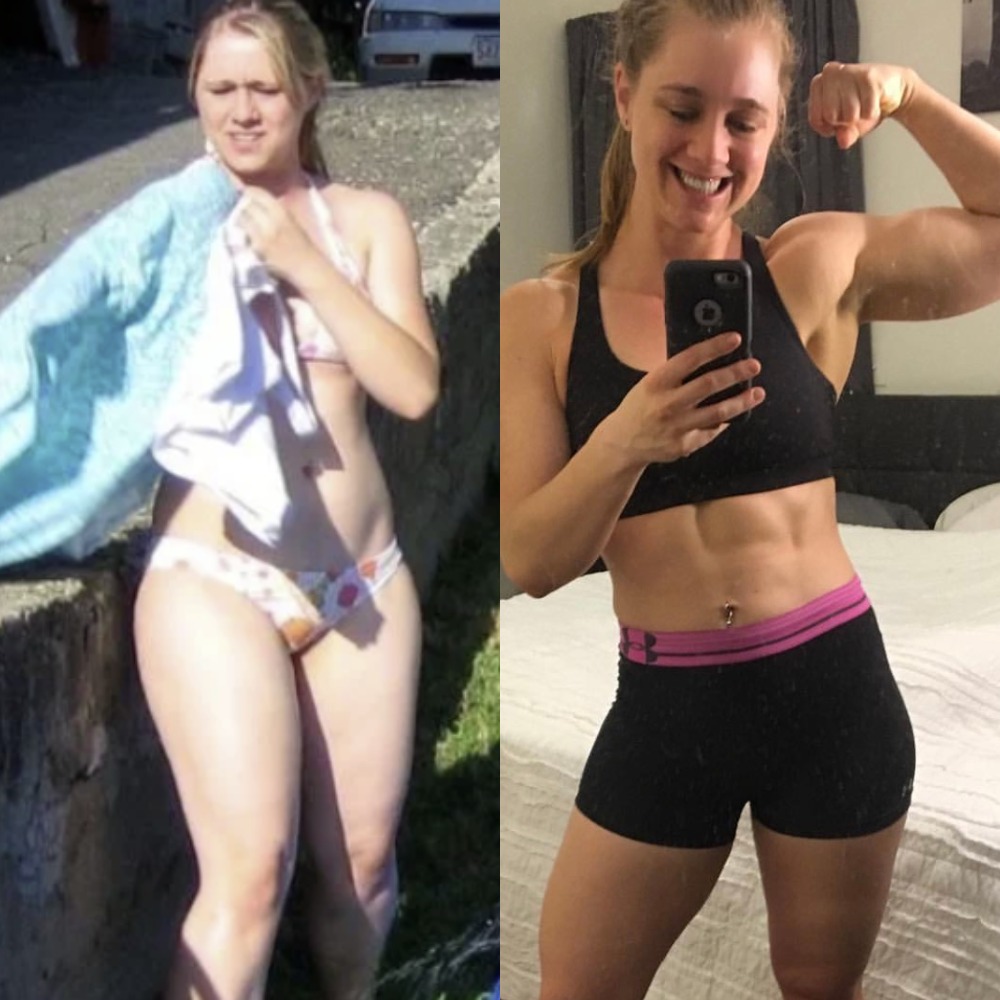
#7) Live longer – want to spend more time on Earth? Strength training and growing muscle will help you do just that.[7]
Boom!
Although strength training is one of the best things you can do for your health, it’s estimated that only about 20% of women do it, far below that of our male counterparts.[8]
That sucks.
It’s part of my life’s work to reverse this trend and to do so, I’m going to need your help.
You in?

Perfect!
Is Strength Training Different for Women?

Here’s something that may shock you: there’s no reason everybody – of any gender or sex – shouldn’t strength train the same way!
Yep, you don’t need 3-pound pink dumbbells, unless you like 3-pound pink dumbbells! You can train with free weights and barbells just like everybody else at the gym.
Sure, there are biological differences between the sexes. For example when strength training, people with typical male anatomy will produce more type IIa fibers than people with typical female anatomy, who will in turn produce more type I fibers than men.[9]
Don’t worry about any of this though.

We don’t need to get you lost in the weeds.[10]
The American College of Sports Medicine doesn’t differentiate between sexes in their strength training recommendation.[11] So neither shall we.
So what exactly is strength training, you may be asking?
“Strength training” of any kind can be explained by two things:
#1) Movement of any weight (including your body weight) – Doing ANY exercise that pushes your muscles outside of their comfort zone, forcing them to rebuild stronger to prepare for the next challenge.
#2) Progressive overload: exerting slightly more effort than last time (lift a heavier weight or do 1 more rep) consistently. Your muscles will constantly have to adapt and will constantly be rebuilding themselves to get stronger.
Coach Jim walks you through different strategies for progressive overload in this video:
Before we get into the ins and outs of strength training, I need to address a question we get over and over from the women in our coaching clients:
Will I get bulky if I lift weights?
If you see a woman who is incredibly muscular and at an extremely low body fat percentage, I guarantee she has been working her butt off for a very long time with the very specific goal of building muscle and looking that way.
It’s not something that happens overnight, or by mistake.
We simply don’t have the same amount of testosterone as people with male anatomy to get there easily.[12] It’s something we cover in great detail in our guide on How to Build Muscle as a Woman.
If you’d like to build muscle, but not as much as a professional bodybuilder – don’t worry, it’s not something that happens by accident.
It’s something Rebel Leader Steve brings up in the video below:
So strike “I don’t want to get bulky” from your vernacular.
Alright, let’s talk about how to actually get started strength training.
Strength Training Level 1: Bodyweight Workouts
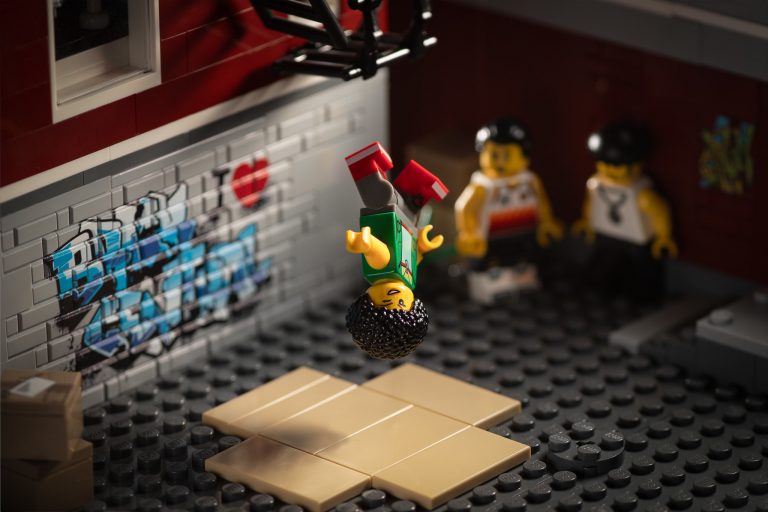
If you’re just starting your strength training journey, our first stop will be a bodyweight workout.
Bodyweight training is simply doing an exercise in which your own body is the “weight” you are “lifting.”
Duh.
This is the BEST place for anybody – regardless of weight or age – to start their strength training journey.
Why is this the best place to start?
Here are two big reasons to do bodyweight training:
#1) You always have your body with you (unless you are a ghost, in which case, this is awkward). This means you can work out ANYWHERE with bodyweight training:
#2) Using your body for resistance training is the most “human” thing ever! By learning to push and pull and hang and squat and lunge, you are doing what your body is literally designed to do.
By getting strong with bodyweight movements, you’re making yourself antifragile and less injury-prone.
Bodyweight training isn’t as easy to ‘scale’ the difficulty as some of the other strength training methods (“put more weight on barbell”), but you can get REALLY strong with just bodyweight training.
For example…
You can start with knee push-ups:
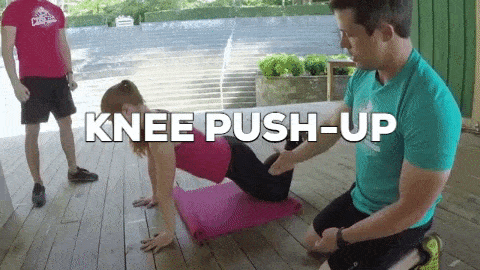
Then go to regular push-ups:
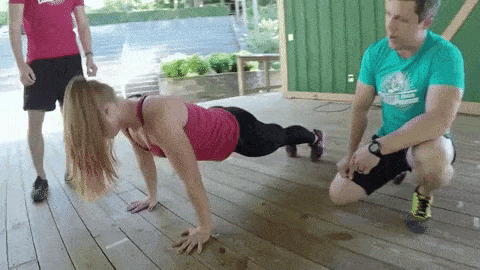
Then elevated push-ups:
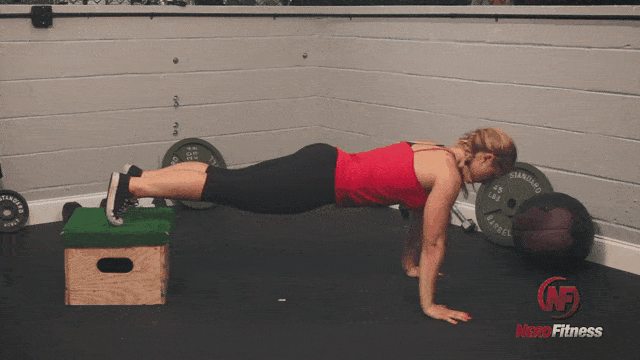
Then even up to things like handstands:
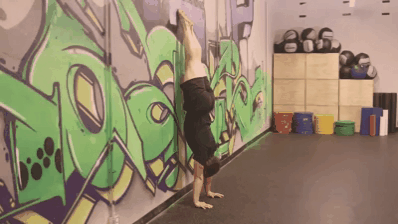
And even handstand push-ups:

You just have to know HOW and WHEN to scale up (we can help there too).
Want a sample bodyweight workout you can try? You got it:
This is the Beginner Bodyweight Workout (3 Circuits):
- 20 Bodyweight squats.
- 10 Push-ups.
- 10 Walking lunges (each leg).
- 10 Dumbbell rows (use a milk jug or other weight).
- 15 Second plank.
- 30 Jumping jacks.
Want some variety? Try 8 other “at-home workouts.”
You can also create your own “no equipment workout” by reading the 42 Best Bodyweight Exercises.
Strength Training Level 2: Dumbbell Workouts
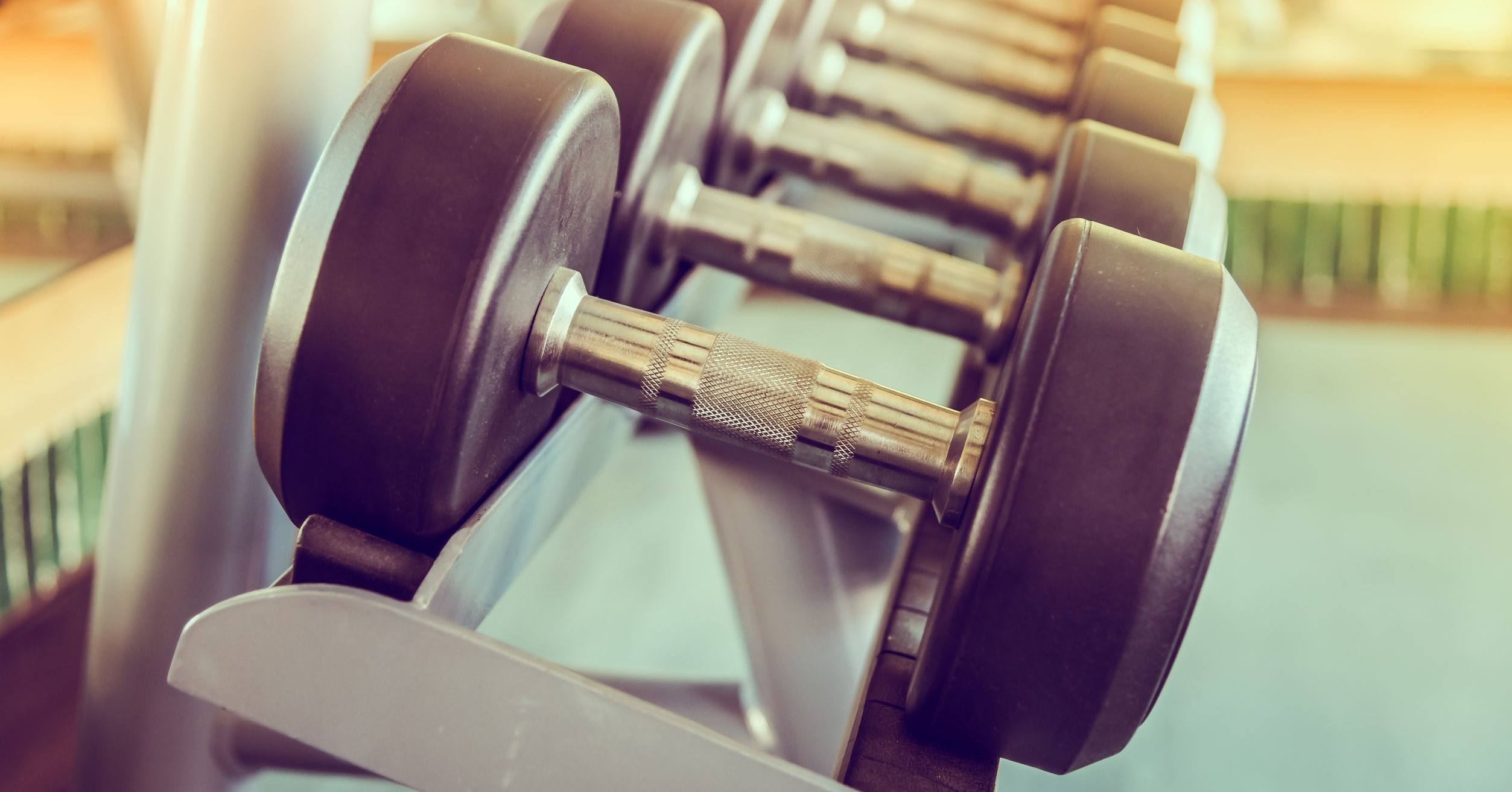
The next stop on our strength training journey includes lifting some actual weights!
Woot.
Dumbbells are a great first step into the world of weight training and strength training:
- Most gyms will have dumbbells, even if it’s a basic gym in your apartment complex.
- A set of dumbbells doesn’t take up a lot of room, which means you can have a pair at home without a large footprint.
- Dumbbells make it easy to add difficulty to a bodyweight movement: holding dumbbells while doing lunges, for example.
- Dumbbell exercises can be less intimidating than barbell training for some, and are a step towards barbell training.
- Dumbbells have an added stabilization challenge, and will point out muscle imbalances pretty easily (“oh my right arm is stronger than my left arm.”).
- You can scale easily. Once the 10 pound weights become too easy, pick up the 15 pound ones!
Here’s a beginner workout that you can do, taken from our Level 4 Gym Workout “Dumbbell Division”:
- 10 goblet squats
- 10 push-ups
- 10 dumbbell rows per side
Here’s how to perform a goblet squat:

This is a push-up done in proper form (in case you skipped the last section[13]):

And here is how to do a dumbbell row:
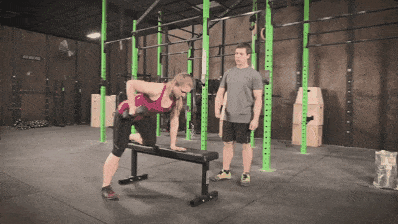
If you’re following along at home, you just did your first full-body workout using weights!

Want a custom-built dumbbell workout? Something designed for the weights in your apartment’s gym?
Our Nerd Fitness Coaches can do just that! Plus they’ll scale your workouts as you grow stronger, turning you into a superhero!
Strength Training Level 3: The Wide World of Barbells
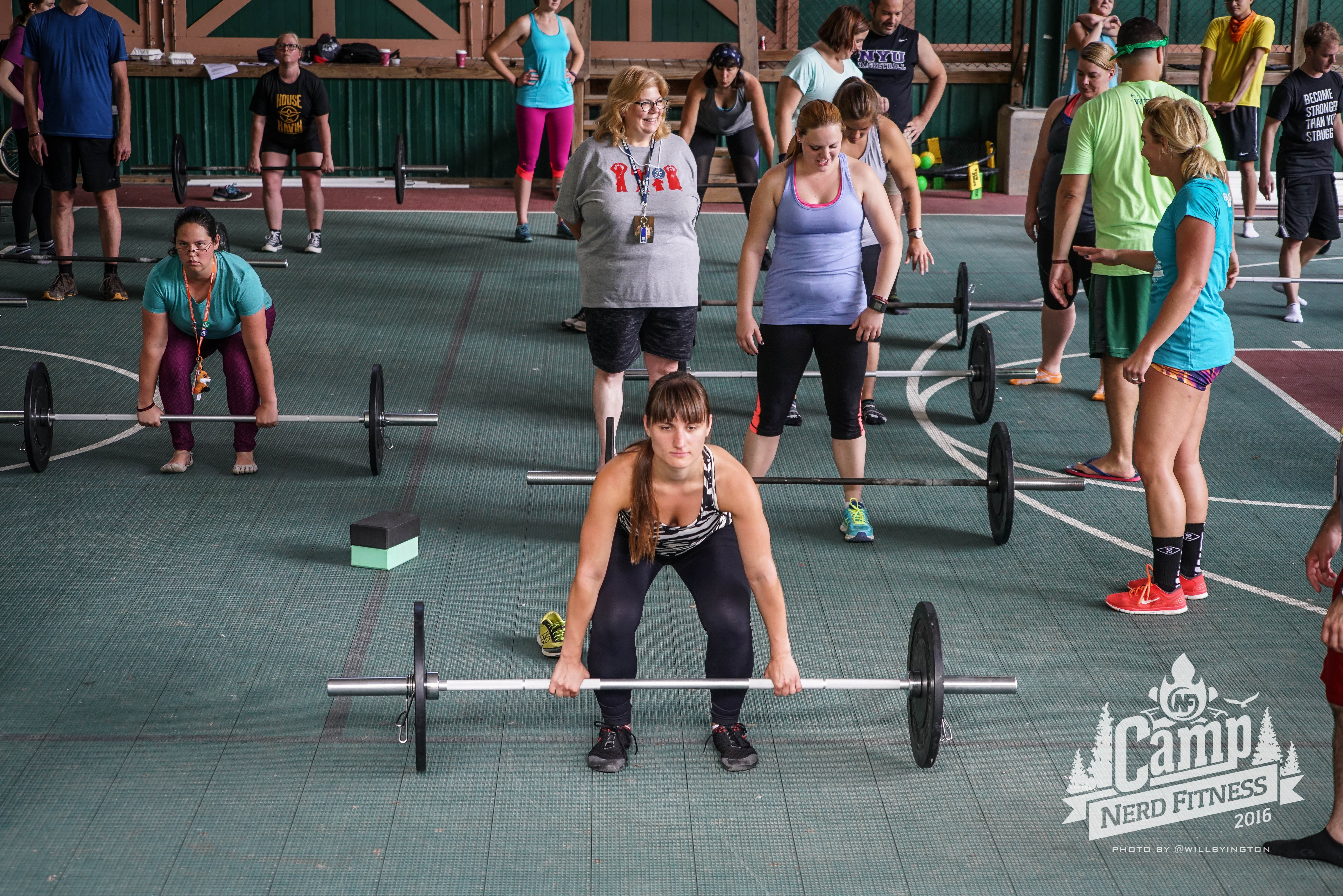
You made it! It’s now time to start training with barbells!
This is going to help you become ultra-powerful and strong.
It’s how I transformed myself into the person I am today.

The reason barbell training is so important is that it allows you to pick up heavy weights and do movements that recruit every muscle in your body. This is great for building powerful, strong muscles in your core, legs, glutes, and so on.
We’re talking about exercises like the Back squat:
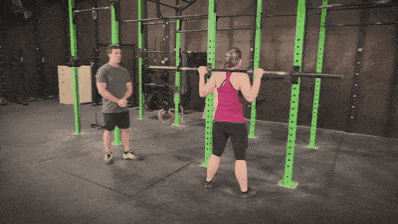
And the Barbell Deadlift:
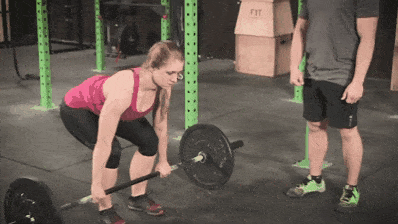
Show me somebody that’s strong at both of these movements, and I’ll show you somebody that’s in better shape than most of the human population.
But wait!
Even an empty barbell can be heavy (normally 45 pounds or 20Kg), so before we jump into the deep end, let’s make sure you are strong enough to proceed.
You’ll need to be able to complete a goblet squat with a 45 pound dumbbell (shown earlier) and the Romanian deadlift with 20 pound dumbbells.
Here’s how to perform the Romanian deadlift with dumbbells:
Our test to see if you can handle barbell training will be the Level 4 Gym Workout: Dumbbell Division C (taken from our Beginner’s Guide to the Gym).
You’ll need to be able to go through the following before you start training with barbells:
- 10 goblet squats – 45 lbs (20Kg dumbbell),
- 10 Romanian deadlifts with 20 lbs dumbbells (9-10 Kg)
- 10 push-ups (on knees or regular)
- 10 dumbbell rows with each arm – at least a 20 lb dumbbell
Can’t do those movements at that weight? Stick to the Level 4 Gym Workouts until you build up the strength to progress to barbells.
Once you CAN do the above, the real fun is going to start!
We’re gonna replace the goblet squat with a back squat and the RDL with a barbell deadlift.
Here’s a video demonstration on how to perform the barbell back squat:
I would also encourage you to read How to Squat Properly for a full tutorial, especially if you’re just learning how to squat.
Here’s a step-by-step video on how to do the deadlift:
Again, make sure you read How to Deadlift Safely With Proper Form if you’re just starting your deadlifting journey.
Once you get the handle of these two moves, it’s time for a full-body workout using barbells!
We’ll give you two different days to alternate between.
NF BEGINNER BARBELL STRENGTH WORKOUT: DAY A
Do 3 rounds of:
NF BEGINNER BARBELL STRENGTH WORKOUT: DAY B
Do 3 rounds of:
- 5 barbell Romanian deadlifts
- 10 push-ups
- 10 dumbbell rows per arm
That’s it! Do each of these once a week and you’ll be rocking an awesome strength training practice.
Are you doing the workouts correctly?
A good way to tell would be to record yourself doing the movement and then match them against the gifs and videos in this guide. If they look close you’re doing great!
We also provide form checks in our 1-on-1 Online Coaching Program. Through our snazzy app, a Nerd Fitness Coach (like me!) will review your movement to make sure you are training correctly and safely!
How Much Weight Should Women Lift?
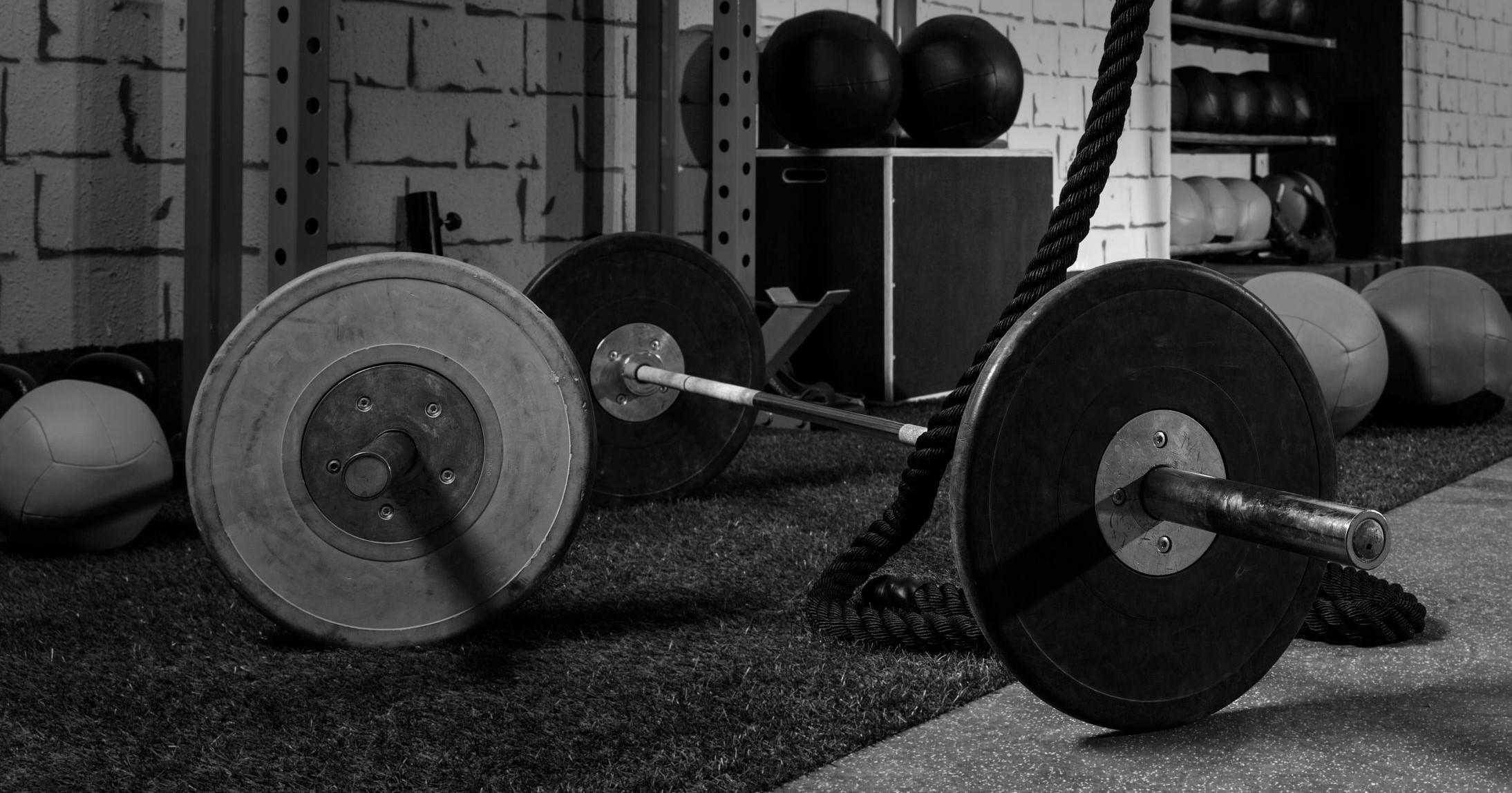
We have a FULL resource on how to determine your starting weight for lifting, but I’ll give you the gist here.
The simple to learn but tough to implement answer: lift enough so that you can get through the set, but not too much that you have NO fuel left in the tank at the end.
And then, try to lift sliiiightly more than last time.
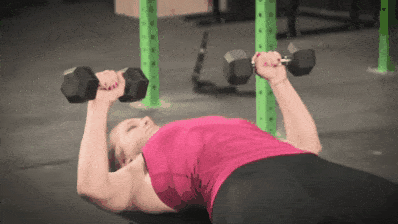
How much weight should I start with?
- If you are using dumbbells or a kettlebell, always err on the side of “too light” versus “too heavy.” You want to learn the movement correctly and build correct form.
- If you are training with a barbell, ALWAYS start with JUST the bar, no matter the exercise (as a reminder, a standard barbell weighs 45 pounds).
“How fast should I add weight to the bar?”
Here’s what we teach all of our coaching clients: add the minimum amount of weight each week you can, even if you THINK you can lift more. It’s better to finish a workout full of momentum and say “I can do more!” than defeated and saying “that was too much, crapola.”
Think of it this way, even if you are adding just 5 pounds per week to the bar, within a year you would be lifting 300+ pounds!
So go SLOW. Team NF’s Steve even bought little half-pound weights and increases many of his lifts by just 1 pound per week.
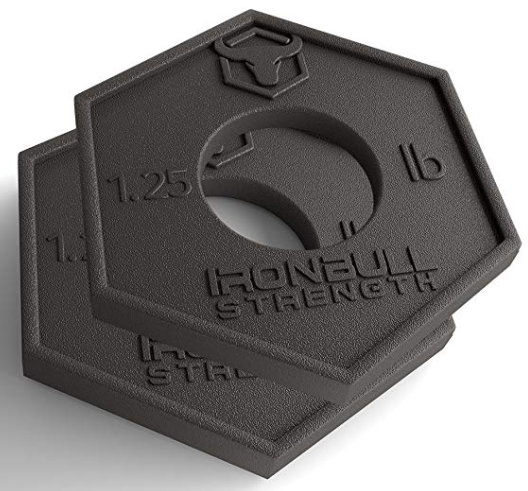
It’s a big part of how he transformed (jokingly) from Steve Rogers to Captain America.
And if you are looking for this content in an easily digestible form, make sure you download our free Strength 101 Guide when you join the Rebellion below:
Download our comprehensive guide
- Everything you need to know about getting strong.
- Workout routines for bodyweight AND weight training.
- How to find the right gym and train properly in one.
Can Strength Training Help with Weight Loss?
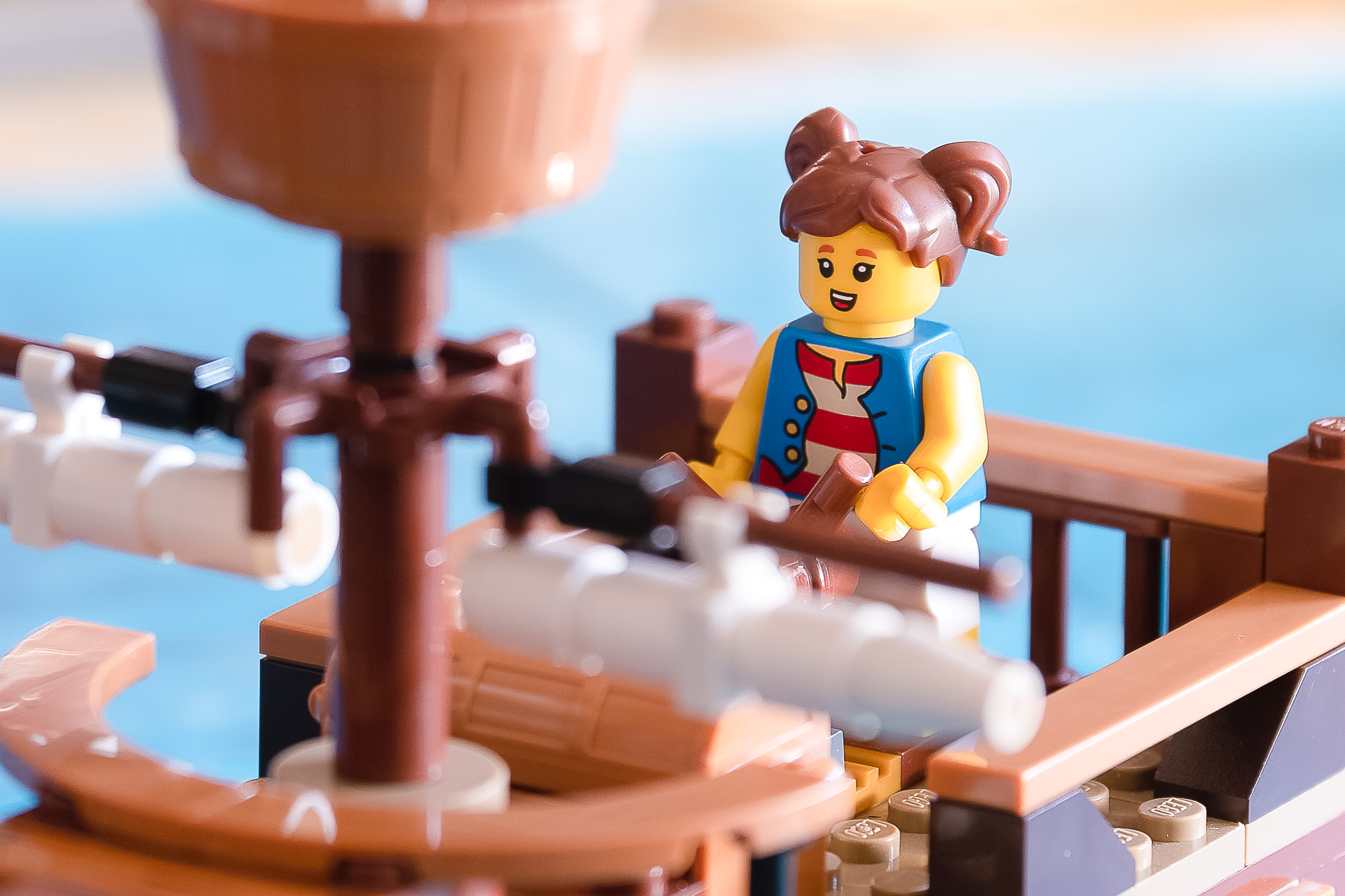
We get questions relating to weight loss and strength training all the time, and it’s something we cover throughout our Strength Training 101 series.
Let me quickly address it here:
Fat and muscle are two different things – one can’t transform into the other.
We all have plenty of muscle right now (otherwise we wouldn’t be able to move, walk, sit upright, etc.), the muscle is just hiding underneath a layer of body fat.
In order for us to lose weight and look better, we want to do two things:
- Build our muscles stronger and tighter.
- Reduce the fat covering those muscles!
And luckily, both of those things happen simultaneously through strength training!
Coach Matt explains exactly how in this video on losing fat while gaining muscle (also known as “getting toned”):
So NO, you don’t need to lose weight first before you start strength training.
You will lose weight BY strength training (and keep the muscle you have).
You do NOT need to do hours of cardio for weight loss – weight loss is 90% a result of your nutrition. So honestly, you don’t need to ever set foot on a treadmill again (unless you WANT to).
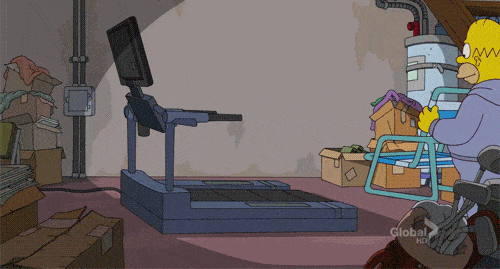
Strength training will help you lose weight and look better IF you do two key things for effective weight loss:
As we cover in our “Why can’t I lose weight” article (full of fun Harry Potter references), combining a caloric deficit and strength training is magic:
- You’re not consuming enough calories to carry out your body’s daily functions.
- Your body needs to use lots of calories to rebuild the muscle that was broken down during the strength training workout.
- Your body has no choice BUT to pull from fat stores to get stuff done!
Just by doing those two things (get strong, reduce calories), all sorts of wizardry and witchcraft takes place in your body:
- Get stronger and keep the muscle you have.
- Build tight dense muscle.
- A revved-up metabolism while rebuilding muscle.
- Burning of body fat to get things done.
Yeah, you’re hearing me correctly.
Lose the body fat that sits on top of your muscles and you’ll make your muscles tighter and denser = look better without clothes on.
So how do you put this into practice?
- Pick one of the strength workouts we covered earlier (start at the Beginner Bodyweight Workout if you feel unsure where to begin).
- Calculate your daily caloric needs.
- Learn which diet is best for you and make a small change.
Oh, what’s that? You just want somebody to tell you exactly how to train for your body, and how to eat for your goals?
Fine!
Check out our 1-on-1 Coaching Program – it’s helped hundreds of women lose weight through strength training – and proper nutrition. We work with you on habit-building and lifestyle design to actually get stuff done!
The Best Strength Training Exercises for Women
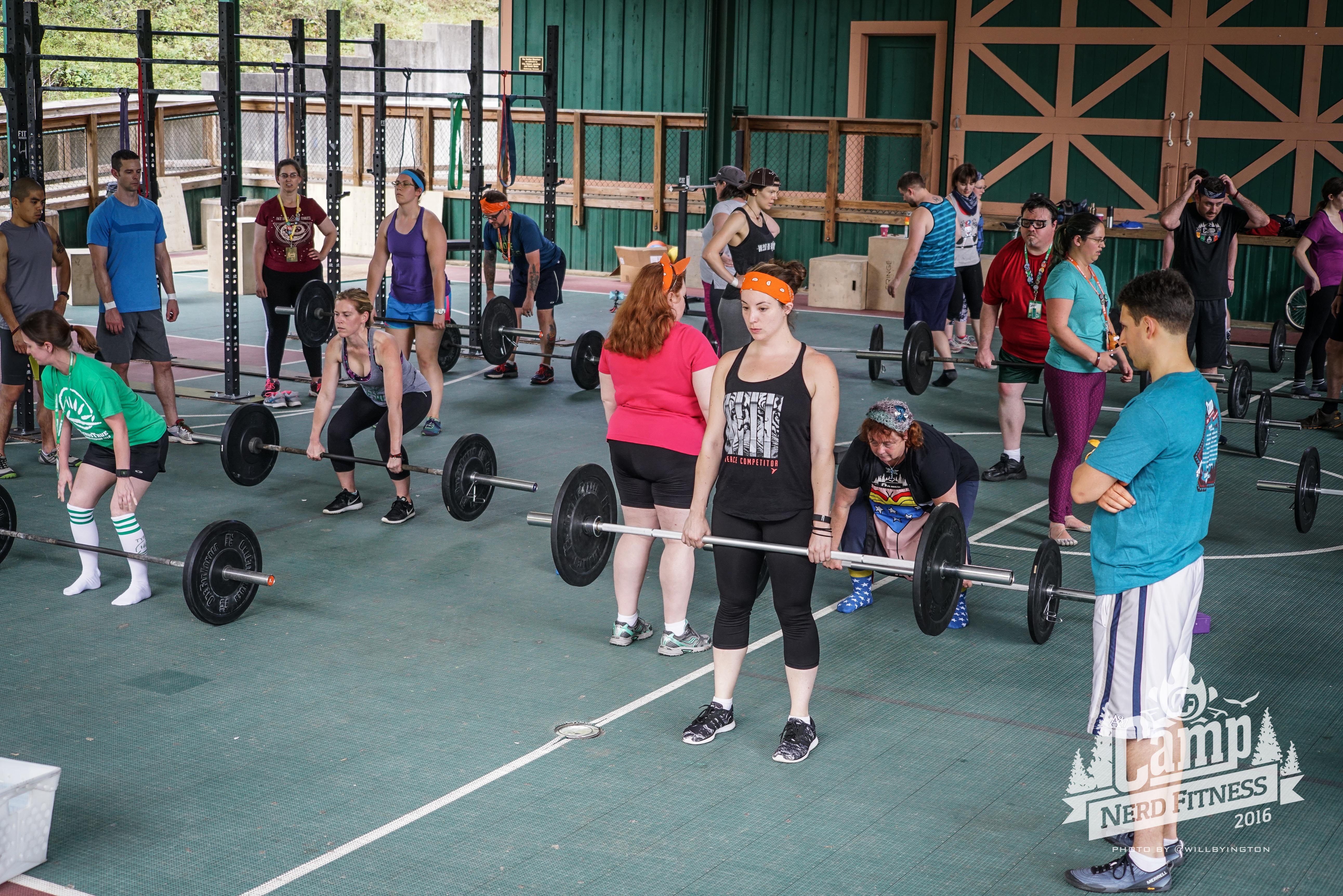
Great news:
The best strength training exercises are universal. No matter your size, shape, sex, gender, age, or whether you love Star Trek more than Star Wars, these are the best exercises to build a great physique.
I’m going to share with you the exercises that every beginner should master (scroll down for full video and explanations!).
The 9 Best Strength Training Exercises for Women are:
- Push-up: uses every push muscle in your body (chest, shoulders, triceps)
- Bodyweight squat: uses every muscle in the lower body (quads, hamstrings, glutes, core)
- Bodyweight row: works every “pull” muscle and helps prepare you for a pull-up!
- Pull-up or chin-up: the best “pull” exercise in history! Everybody should have a goal to get their first pull-up.
- Bodyweight dip: advanced “push” movement that targets your push muscles (chest, shoulders, triceps) in a different way than push-ups.
- Barbell squat: the best bang for your buck on muscle building. Recruits nearly every push muscle in your whole body, and a great core workout.
- Barbell deadlift: the favorite exercise of every coach at Nerd Fitness. Uses every “pull,” leg, and core muscle in your body.
- Barbell benchpress: as basic and powerful as they come. Uses every “push” movement in your upper body and can get you strong as heck!
- Barbell press: press the bar above your head! Targets shoulders and triceps more than the chest.
Click on any of these exercises to get a FULL explanation of the movement, step-by-step:
1) The Push-Up: The best exercise you could ever do for yourself when it comes to using your bodyweight for push muscles (your chest, shoulders, and triceps):
2) The Bodyweight Squat: This exercise serves a dual purpose as it’s the foundation for building strength AND helps build proper mobility. If you are going to ever do barbell squats, you need to work on hitting proper depth with a bodyweight squat first!
3) The Inverted Bodyweight Row: Until you can get your first pull-up or chin-up, these exercises are GREAT to start building your pull-muscle strength (back, biceps, and forearms).
4) The Pull-Up and Chin-Up: Once you can support your bodyweight above the bar, the world becomes your playground. No strength training routine should be without pull-up or chin-up work! (Click here if you can’t do a pull-up or chin-up yet?)
5) The Bodyweight Dip: As you start to get stronger with push-ups and need to find a way to increase the challenge, consider doing dips. Warning: these are very advanced, but incredible strength-building exercises.
And now we’re into the best weight training exercises:
6) The Barbell Squat: Probably the best exercise when it comes to building strength and muscle throughout your whole body. It also burns crazy calories and makes life better. This is a MUST:
7) The Barbell Deadlift: Maybe the best exercise of all time. Actually no, it IS the best exercise of all time. It’s certainly the most primal: “pick the weight up off the ground. Done.”
This is a very technical lift, so make sure you read our article on how to do it with proper form:
8) The Barbell Press: Press a barbell above your head. This recruits all of the muscles in your chest, shoulders, and arms in order for you to lift the weight over your head.
As a bonus, you need to really flex and brace your core, which gets those muscles working too.
9) The Barbell Bench Press. Lie on a bench, and lower a barbell until it almost touches your chest. Pause, and then press it back up towards the sky. Repeat! And get strong.
Your mission, should you choose to accept it: commit to trying ONE of these movements in the next week. Use 20 seconds of courage, recruit a friend who has lifted or trained before, and try your best.
And if you want somebody to help you put these into a workout program, teach you HOW to do these movements properly, and have the confidence to know you’re training correctly for your goals…
A Meal Plan for Strength Training (Healthy Eating 101)
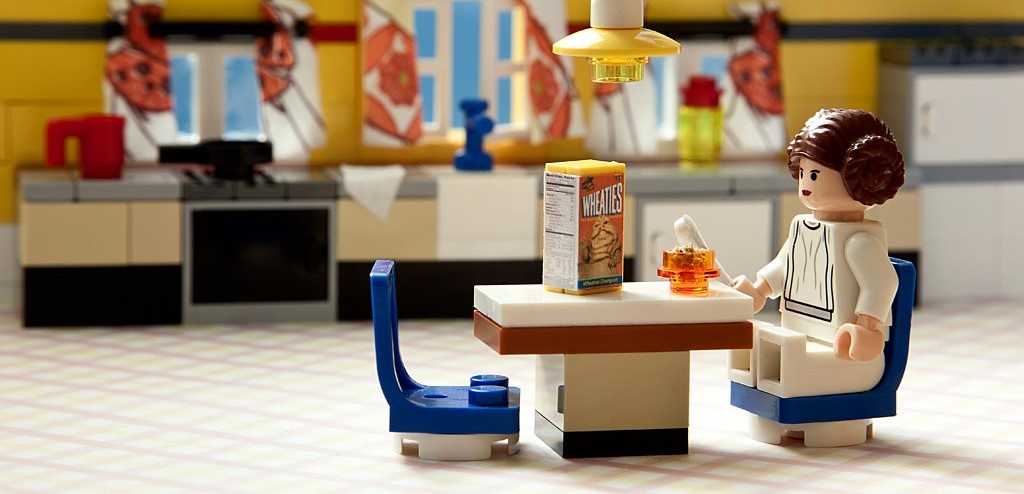
So far, we’ve been more or less just talking about exercises when it comes to strength training.
This is logical, because this is in fact a guide on how to perform certain exercises to grow strong.

However, we constantly remind our coaching clients that 90% of their success or failure on their fitness journey will come down to what they eat.
“Success” in this context really comes down to your goals.
- Are you looking to bulk up? You’ll need to eat more calories than you burn.
- Are you looking to slim down? You’ll need to eat fewer calories than you burn.
At this point, you might be thinking “Staci, how many calories do I need?”
To answer that question, it’s time for the Nerd Fitness Calorie Calculator!
(Click here for our Metric calculator)
(Note: we have used The Mifflin-St Jeor Equation to create this calculator! [14]).
- If you want to bulk up and gain weight, take your TDEE and add 250 calories to it to get your daily goal. This should result in gaining half a pound per week.
- Want to lose weight? Take your TDEE and subtract 250 calories to receive your daily goal. This should result in losing about a half-pound a week.
The other piece of the equation outside of a caloric surplus/deficit is protein.
Since you will be strength training and building muscle, you’ll need to make sure you are eating protein at every meal. It’s the number one macronutrient for creating new muscle tissue.[15]
Protein can come from any number of sources, including:
- Meat (steak, bison, pork).
- Fowl (chicken, turkey, duck).
- Eggs![16]
- Cheese and dairy.
- Fish and shellfish (salmon, tuna, shrimp).
- Legumes (black beans, chickpeas).
- Other vegetarian protein sources here.
As we cover in our “How much Protein do I need?”, claims for the amount of protein required for muscle growth vary wildly from source to source (and woman to woman).[17]
Here is our recommendation:
- If you’re of healthy weight, active, and wish to build muscle, aim for 1 g per pound of bodyweight (2.2 g/kg).
- If you’re an experienced lifter on a bulk, intakes up to 1.50 g/lb (3.3 g/kg) may help you minimize fat gain.
Let me simplify it for you:
“To build muscle, target at least 1 gram of protein per pound of bodyweight (2.2 grams per kg).”
If you’re curious, from our healthy eating article, this is what a portion of protein looks like:
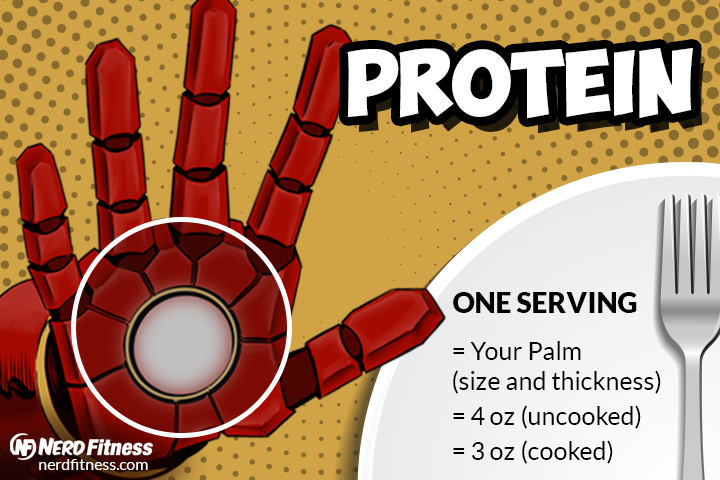
Here’s how much protein is in a serving of food:
- 4 oz (113 g) of chicken has around 30 g of protein.
- 4 oz (113 g) of salmon has 23 g of protein
- 4 oz (113 g) of steak has 28 g of protein.
Want to get more protein? Consider protein shakes. Rebel Leader Steve and I both supplement with shakes daily to meet our protein goals.
Whatever you do, make sure you’re getting enough!
Whenever we speak with new Online Coaching Clients, protein is the macronutrient we begin every discussion with! It’s THAT important when it comes to either weight loss or building muscle. I’m not kidding when I say it should make up a portion of every meal you eat.
The Top Frequently Asked Strength Training Questions for Women

Here are some of the most common questions we receive from women beginning their strength training practice in our 1-on-1 Coaching Program.
#1) Will I get bulky lifting weights? I really don’t want to.
I have GREAT NEWS!
Strength training will not make you bulky, UNLESS you want it to!
And if you want to bulk up? That’s AWESOME!

Here’s how to build muscle correctly.
You get to pick how you want to look, so you do you.
Just remember that women who compete as bodybuilders didn’t start looking like overnight:
- They have eaten, trained, and potentially taken supplements specifically so they can look like that! Which is great. Good for them.
- They’ve been working towards that goal for years, probably decades.
Here’s the truth: when you pick up heavy things (like barbell training), your muscles get STRONGER (but not necessarily bigger).
If you actively eat for the goal of building muscle and getting bigger, you CAN build muscle and size.
Again, if you want bigger arms or stronger glutes, AWESOME. You do you.
Let’s talk about the reverse: If you pick up heavy things and eat a caloric deficit, your muscles will get stronger and denser; you will burn the fat on top of your muscle, and you will lose weight and get that “toned” look that many women are after.
Jump back to our healthy eating section for more on caloric deficits and surpluses.
#2) Can I spot reduce fat with certain exercises?
Sir Mix-A-Lot was wrong. Don’t do side bends and sit-ups, because you’re wasting your time!
- Side bends don’t get rid of love handles. They will simply strengthen your side muscles without actually reducing any fat there, potentially making you bigger around the waist unless you change your diet as well.
- Sit-ups will not remove belly fat. They can also wreak havoc on your lower back, and are an incomplete exercise.
Your body cannot spot reduce fat in specific locations. If you have flabby arms or a big stomach, doing thousands of bicep curls and thousands of crunches won’t help.
Your body is genetically predisposed to storing fat in certain locations in a certain order.
When you start to lose weight, your body will lose the fat you currently have in a certain order as well – it might come off your arms first, then your legs, then your belly, then your chest, and THEN your butt.
Or in a different order, depending on your personal genetic makeup.
No amount of targeted exercise will change how that fat disappears.
Want to lose weight? Reduce your caloric intake in a way that doesn’t make you miserable:
We cover ALL the popular diets, and why they will ALL work…temporarily in our article on “which diet is right for you?” (Just don’t do the Military Diet!)
Here’s the truth: your diet – specifically how MUCH you eat – will be responsible for 80-90% of that fat-loss equation.
The other 10%-20% can come from strength training and fun exercises.
Big compound movements that recruit lots of muscle (and thus force your body to rebuild lots of muscle, which requires extra calories burned, even after the workout is done). Our section on the best strength training exercises for women would be good examples of compound movements.
#3) How many days a week should a woman lift weights?
Unless you’ve been strength training for years and know what you’re doing, we recommend that you pick a full-body routine that you can do 2-3 times a week.
You build muscles while resting, not working out, so you generally want 48 hours before engaging the same muscle group again.
If you made it up to our “The Wide World of Barbells” section, you can do the DAY A workout on Monday and the DAY B workout on Thursday. That’ll give you plenty of time to recover.
Want more? Maybe on the weekend, you sneak away for a short hike.

Read “Exercise Without Realizing It” for more ideas on how to keep your body moving!
Don’t worry if this doesn’t seem like a lot at first. We are interested in building the habit of strength training initially. We can up the frequency once you’re rocking and rolling.
Learning to meal prep would also be a good use of your time between training sessions.
4) Can I do strength training at home?
You sure can!
Many of our coaching clients have gotten in great shape simply by doing bodyweight exercises at home.
Here are a few resources to get you strength training in your living room:
We can also build you a custom workout for your exact situation, whether you’re stuck at home or in an office, we can create a solution that fits your busy life!
How to Begin Lifting Weights as a Woman (Next Steps)

Since 2009, Team Nerd Fitness has learned a tremendous amount about how to best serve the ladies of this community.
I want to share with you my favorite success story.
Meet Leslie, a very sedentary single mom who works long hours that managed to lose 100+ lbs with the Nerd Fitness Coaching Program:

What spurred her epic transformation?
In two words: strength training.
Leslie learned to train the right way, picked up a barbell, fixed her diet, and now does crazy things like handstands and ring work!
So if you’re tired of the same ole same ole and you’re ready to start strength training, you’re in the right place!
Not sure what to do or how to get started?
1) Check out our 1-on-1 Coaching Program! Our philosophies help women like Leslie above and they can be the philosophies that help you become strong inside and out.
Click on the image below to schedule a call and see if we’re a good fit for each other!
2) If you want a daily prompt for doing workouts at the gym (or at home), check out NF Journey. Our fun habit-building app helps you exercise more frequently, eat healthier, and level up your life (literally).
Try your free trial right here:
3) Join the Rebellion! Our free community numbers in the hundreds of thousands scattered throughout the globe, and we need good people like you!
You can join by signing up in the awesome yellow box below, and I’ll send you a bunch of free guides and printable workouts, including our Strength 101 guide!
Download our comprehensive guide
- Everything you need to know about getting strong.
- Workout routines for bodyweight AND weight training.
- How to find the right gym and train properly in one.
4) Do a strength training workout this week! The most important step you can do is to actually start.
You got this. You can do it. I know because we’ve seen it countless times here at Nerd Fitness.
Enough from me though, now it’s your turn:
Are you just starting your strength training journey?
Do you strength train at home or the gym?
Any weight lifting tips or tricks we missed?
Let us know in the comments!
-Staci
PS: Make sure you read the rest of the articles in our Strength Training 101 series:
###
Photo source: Women’s day 2015, Goodbye Batman, Scenes from an empty lot in Brooklyn, DSC_0254, tonobalaguer © 123RF.com, Pirate girl, The Breakfast of Jedi, Cecaelia has come, Lance Cpl. Tayler P. Schwamb.
GIF source: Thumbs up, Emma Stone Yes, Bird Delete, Lisa Simpson, Duh, Ninja Turtles, hiking.
[ad_2]
Source link







